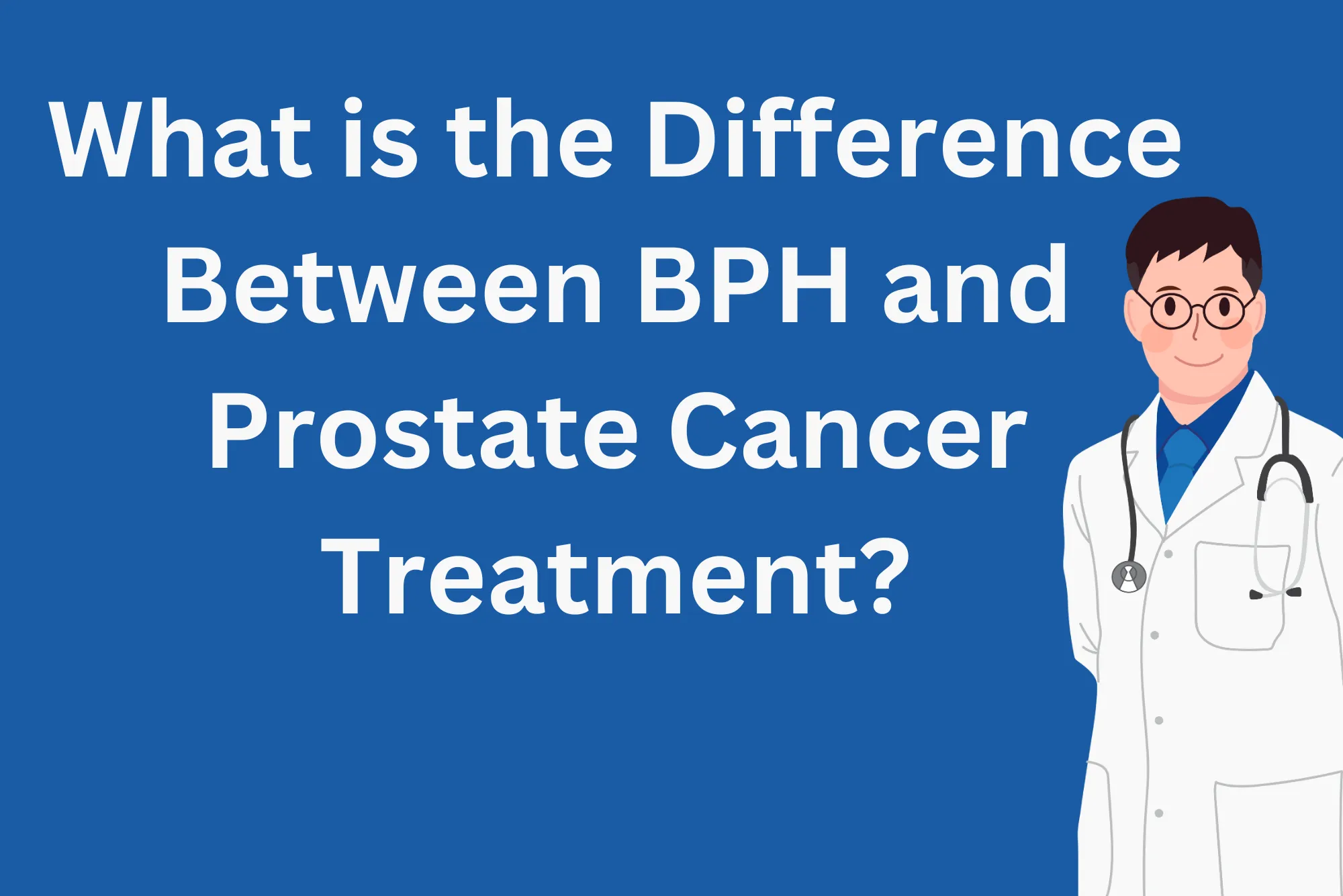Benign Prostatic Hyperplasia (BPH) and prostate cancer are two common conditions affecting the prostate gland. While both can cause urinary symptoms, they have distinct causes, risk factors, and treatment approaches. Understanding the difference between BPH and prostate cancer treatment is essential for making informed healthcare decisions.
Understanding BPH and Prostate Cancer
What is BPH?
BPH, or benign prostatic hyperplasia, is a non-cancerous enlargement of the prostate gland. It occurs due to hormonal changes as men age, leading to the growth of prostate cells that compress the urethra. This can result in urinary difficulties, such as frequent urination, weak urine flow, and incomplete bladder emptying.
What is Prostate Cancer?
Prostate cancer occurs when abnormal cells in the prostate grow uncontrollably. Unlike BPH, which is benign, prostate cancer can spread to other parts of the body. Early detection is crucial for effective treatment and better outcomes.
Key Differences Between BPH and Prostate Cancer Symptoms
Although both conditions affect the prostate, their symptoms can differ:
- BPH Symptoms: Frequent urination, especially at night, weak urine stream, difficulty starting urination, and a feeling of incomplete bladder emptying.
- Prostate Cancer Symptoms: Difficulty urinating, blood in urine or semen, unexplained weight loss, pelvic pain, and erectile dysfunction.
If you experience any of these symptoms, consulting a healthcare professional is essential for an accurate diagnosis.
Treatment Options for BPH and Prostate Cancer
Best Medicine for BPH
The treatment for BPH often includes lifestyle changes, medications, or minimally invasive procedures. Alpha-blockers and 5-alpha reductase inhibitors are commonly prescribed to relax prostate muscles and shrink the gland. In some cases, a doctor may recommend best medicine for BPH to effectively manage symptoms and improve urinary flow.
BPH Treatment Approaches
For individuals with moderate to severe symptoms, additional BPH treatment options may include:
- Minimally Invasive Procedures: Techniques such as transurethral resection of the prostate (TURP) and laser therapy help relieve symptoms by removing excess prostate tissue.
- Lifestyle Modifications: Regular exercise, a healthy diet, and reducing caffeine and alcohol intake can help manage symptoms.
- Surgical Intervention: In cases where medications and minimally invasive procedures are ineffective, surgery such as a prostatectomy may be required.
Prostate Cancer Treatment Options
Treatment for prostate cancer depends on the stage and severity of the disease. Common options include:
- Active Surveillance: For slow-growing prostate cancer, doctors may monitor the condition rather than initiating immediate treatment.
- Radiation Therapy: High-energy rays are used to kill cancer cells and shrink tumors.
- Hormone Therapy: Androgen deprivation therapy (ADT) reduces the levels of male hormones that fuel cancer growth.
- Surgery: Radical prostatectomy involves the complete removal of the prostate gland.
- Chemotherapy: Used for advanced or aggressive cases where cancer has spread beyond the prostate.
Cost Factors in BPH and Prostate Cancer Treatment
The cost of treatment varies based on factors such as location, healthcare provider, type of treatment, and insurance coverage. BPH treatment is generally more affordable compared to prostate cancer treatment, which often requires extensive medical care, hospital stays, and advanced therapies.
The Role of Eco-Friendly Treatment Approaches
Modern medical advancements emphasize eco-friendly treatment approaches. Natural supplements, herbal remedies, and lifestyle modifications are becoming popular for managing BPH symptoms without relying solely on pharmaceutical drugs. Additionally, advanced radiation therapies for prostate cancer are designed to minimize environmental impact while ensuring patient safety.
Choosing the Right Treatment for Your Needs
When selecting a treatment option, consider:
- Severity of Symptoms: Mild BPH may be managed with medications, while severe cases require surgical intervention.
- Medical History: Certain treatments may not be suitable for individuals with underlying health conditions.
- Doctor’s Recommendation: Consulting a urologist or oncologist ensures the best course of action based on the patient’s health status.
For more health-related insights and expert advice, visit Butternut Note. Stay updated with the latest information on wellness, treatments, and lifestyle improvements for better overall health.




